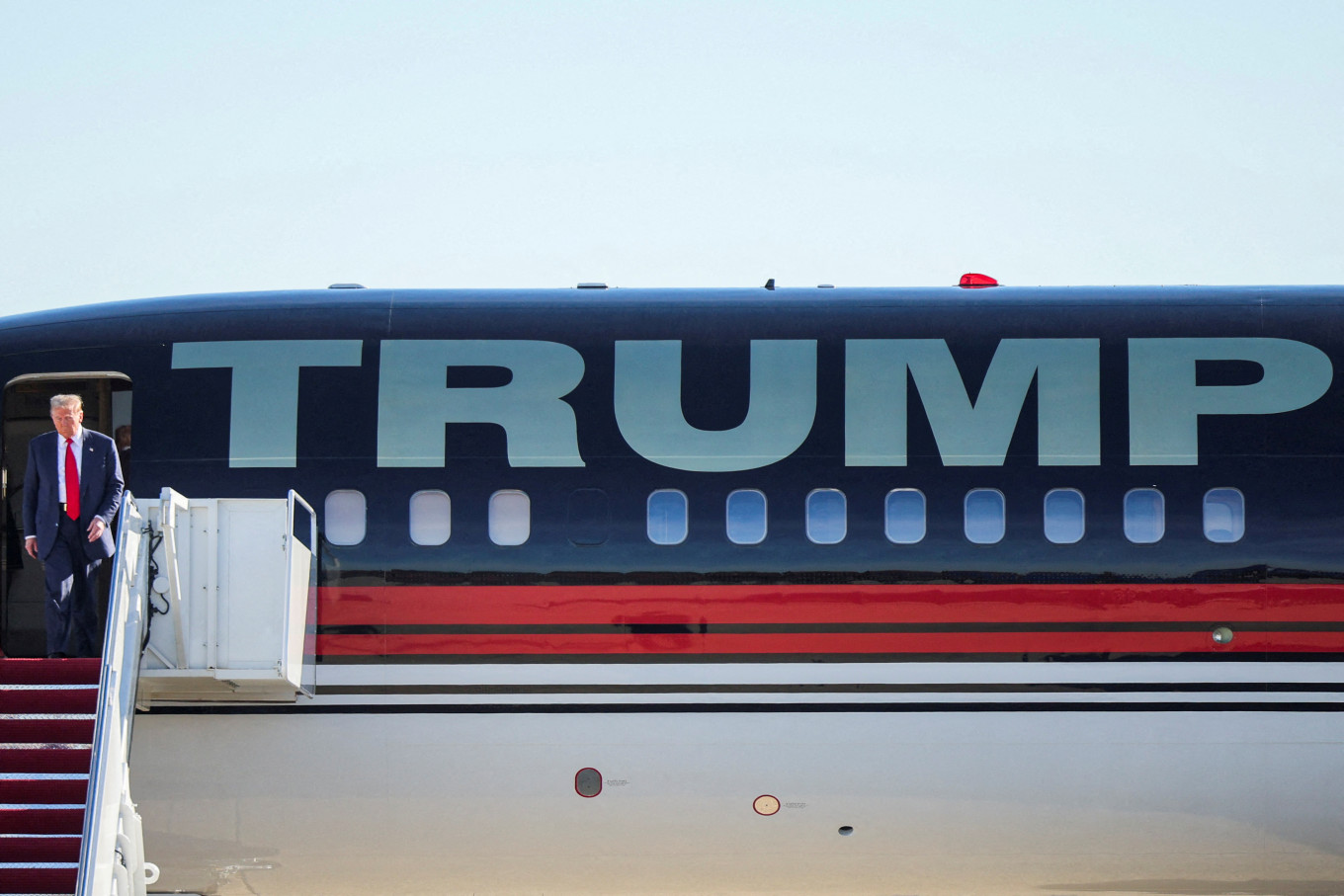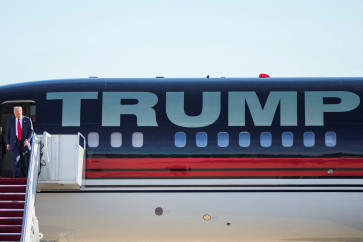Popular Reads
Top Results
Can't find what you're looking for?
View all search resultsPopular Reads
Top Results
Can't find what you're looking for?
View all search resultsTrump’s second term could deepen Indonesia-China relations
For Southeast Asia, where many nations walk a tightrope between Washington and Beijing, Trump’s combative approach toward China requires a recalibration of policy.
Change text size
Gift Premium Articles
to Anyone
W
ith Donald Trump having been elected the 47th president of the United States, his presidency will likely lead to shifts in Southeast Asia’s geoeconomic landscape. His “America First” policy suggests an era of heightened trade wars, a potential unraveling of multilateral agreements and a retraction of US commitments to and engagement with Southeast Asia.
For Southeast Asia, where many nations walk a tightrope between Washington and Beijing, Trump’s combative approach toward China will require them to recalibrate their policy. Economically, meanwhile, as the US-China rivalry intensifies, Southeast Asian nations might attract foreign direct investment as companies seek alternatives to China. Yet this dynamic could also deepen the region’s reliance on China for trade and investment, as Trump’s tariffs may force regional players such as Indonesia to lean closer to Beijing for economic support and infrastructure funding.
For Indonesia, the Trump presidency will present the challenge of balancing economic opportunities with the US and China without being drawn too far into the orbit of either. Trump’s isolationist approach, particularly his plans to impose high tariffs, means that trade relations with the US are likely to become more complex.
Southeast Asia, with its export-oriented economies, is wary of Trump’s promise to introduce 10 to 20 percent blanket tariffs on imports and a staggering 60 percent on goods from China, with a specific 200 percent on Chinese electric vehicles. These moves could potentially push Indonesia to deepen its economic reliance on China.
Indonesia’s primary economic goal under Prabowo, downstream industrialization, aligns well with China’s investment priorities. In recent years, Chinese companies have invested significantly in Indonesia’s nickel and EV battery industries, both essential to Indonesia’s plans to position itself as a major player in the global EV supply chain. With the world’s largest reserves of nickel, Indonesia has made a strategic bet on its future as a provider of key battery components. However, Trump’s plan to roll back US support for the EV industry, including plans to cut incentives that have driven domestic EV demand, could have negative effects on global demand for EV batteries and, in turn, for Indonesian nickel.
Another issue where Trump’s policies could impact Indonesia is the climate agenda. Indonesia, like other Southeast Asian nations, is undergoing an economic transformation toward the use of cleaner energy sources. This shift is partly supported by international initiatives like the Just Energy Transition Partnership (JETP). This partnership, heavily funded by the United States and other developed nations, is crucial for supporting Indonesia’s transition from coal dependency to renewable energy. If Trump withdraws US support from the JETP and other climate funds, Indonesia may find itself with fewer resources to fuel its green transition. China, with its own renewable energy advancements and investments in Asia, may emerge as an alternative source of green funding for Indonesia.
Furthermore, economic engagement has been a key pillar of the US Indo-Pacific strategy under Joe Biden. This would allow countries in the region to build economic ties with the US as a counterbalance to China’s Belt and Road Initiative (BRI). However, Trump’s return could mark a retreat from economic engagement, as he focuses on bilateral deals rather than multilateral trade frameworks. Trump’s decision to withdraw the US from the Trans-Pacific Partnership (TPP) in his first term is likely to be mirrored in his second, during which the Indo-Pacific Economic Framework for Prosperity (IPEF) and other economic initiatives could be abandoned entirely.



















